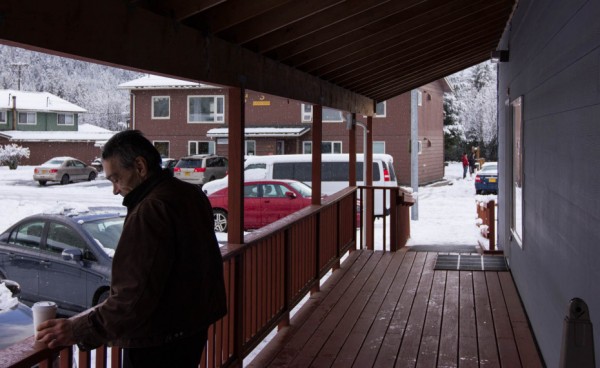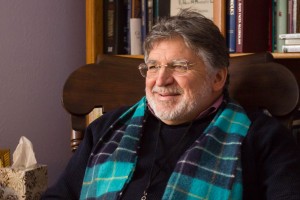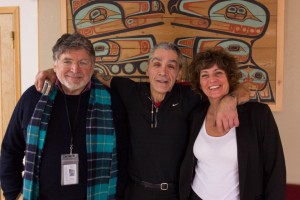With Alaska recidivism rates hovering just above 60 percent, helping prisoners transition back to society successfully is as important as ever. Some prisoners enter a halfway house and receive substance abuse treatment, housing, and help with employment and education.

On my way out of prison, I lived at Gastineau Human Services in Juneau and and attended substance use services.
Back in 2012, I’d been in for six years for assault. And that wasn’t the first time I’d been to prison. I’d been through treatment and transition programs before, but none of them worked like Juneau’s halfway house and its alcohol treatment services. I wanted to put a finger on what worked, and here’s the story. To start, I went back to the halfway house and spoke to a client.
Meet Craig Porter.
“I hit rock bottom, lost everything I had,” he said.
He’s tall, in his late 20s and easy to talk with.
“It took being sober and sitting in a jail cell to realize truly how much I hurt people that I’d cared about and that loved me and how much I’d hurt myself and just took a real moral look at myself and it was — I kinda disgusted myself,” he said.

We’re at the halfway house and he’s sitting in the same chair I was in two years ago. On a day-to-day basis, there’s an average of 80 clients. I see other men and women coming and going, and I wonder if they’ll make it on the outside.
“Drug addiction is what brought me to jail to begin with and I heard about going to the halfway house, GHS, unsentenced. So I figured I’d try that and anything could be better than sitting behind bars,” Porter said.
“Unsentenced” is prison-speak for postponing a court appearance, and during that time you have an opportunity, and possibility, to avoid a harsh sentence by entering something like the halfway house.
“I started talking with the staff and learning more about Juneau Therapeutic Court. And the more I learned about it and what its main purpose was, I decided it would be a good idea to give it a try,” Porter said.
The Juneau Therapeutic Court is part of the court system that sends alcohol and drug abuse-related offenders to treatment and recovery programs instead of prison. Michael Rowcroft is a GHS counselor involved in it.
“I consider my approach to counseling as client-centered,” he said.
Rowcroft worked with me back when I was here. I appreciated the way he helped me get through denial and admitting that I had a problem with alcohol. We made a plan.

“The next stage is action. So you take action, you take the plan, you put it and implement it and start working on developing the tools of recovery, we call them,” Rowcroft said.
For me, the tools of recovery included talking about my problem, and being honest and thinking more positive. And they worked. Slowly, like Craig is now, I was able to get out of the halfway house and do more in the community. That’s part of the plan said GHS Director of Client Services Michele Federico.
“We work with folks on looking at some of their other re-entry needs looking at changing thoughts and behaviors,” she said. “We offer a structured phase system that people earn privileges over time so that they — with good behavior — they are allowed to do more in the community.”
Craig’s about half of my age. I hope he makes the most of his tools of recovery so he can enjoy the rest of his life.

“Before I got to jail and got help from the staff at GHS and through Juneau Therapeutic Court, I really wanted to quit, but I didn’t know what to do or where to go,” he said.
And he has a little advice of his own.
“You need to ask for help if you want it, cause it does not come knock on your door and there’s no one that’s going to tell you have to quit and you’re going to quit you have to really want it,” he said. “You know, go talk to someone if you want the help. Don’t wait for someone to come to you.”
If you do need help, GHS offers a variety of services open to the public as well. As for Craig, I wish him continued success and I’ll check back with him to see how things are going.
Editor’s note: Milligrock interviewed Craig Porter in early September. Porter is still at Gastineau Human Services and is doing well. Milligrock plans to check back in with Craig early next year.




